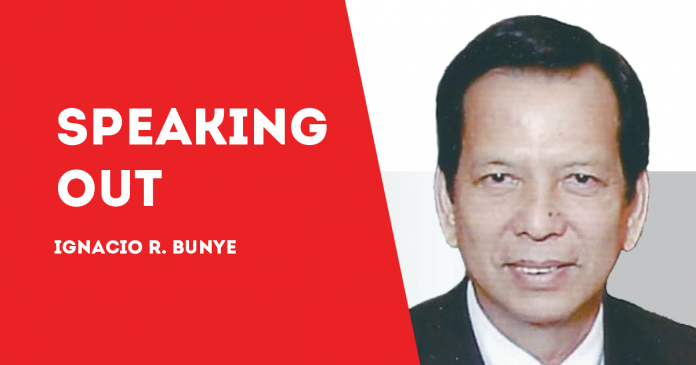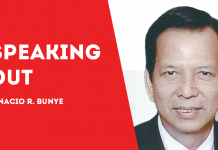
MYLENE Sanchez, 42, pushes a cart to sell coconuts. Through her BanKo loan, she now has a fleet of 12 carts and she was even able to put up a sari-sari store in her home.
She earns P8,000 weekly from the carts and an additional P1,000 daily from the store. She now employs extra hands as vendors.
Leticia Reyes, 63, sews pre-cut pieces of garment for a living. She borrowed from BanKo what she needed to buy additional sewing machines and to fix her place of business. She is now an employer of five and earns P10,000 a week, ten percent more than what she used to make.
With no prior access to bank services, Mylene Sanchez and Leticia Reyes are typical of the 103,166 self-employed micro-entrepreneurs (SEMEs), who have been assisted since 2016 by BPI Direct BanKo (BanKo).
BanKo, a wholly-owned subsidiary of Bank of the Philippine Islands (BPI), has made it its mission to provide proper financial service to these SEMEs, who otherwise had to go to the informal lenders or the so-called “5-6”.
The number of unbanked is staggering, as a 2017 Bangko Sentral study showed, and BanKo is determined to do its share in alleviating the situation. Simon Paterno, who served as BanKo Chairman up to Dec. 31, 2019, spelled out the bank’s vision. “We hope to build a better country for every Filipino. Our end goal is to be able to support and capacitize SEMEs financially, by granting access to easy, convenient and affordable loan products to grow their business and help them contribute to the economic growth of the country.”
Pursuant to this vision, Jerome B. Minglana, BanKo p-resident, implemented BanKo’s aggressive growth from only 10 pilot branches in 2016 to 300 branches nationwide in 2019. Of these, 100 branches opened in 2019 alone. More than 50 percent of BanKo’s branches and branch-lite units are located in 171 town centers in North and South Luzon, two in Metro Manila, while the rest are distributed throughout 71 municipalities in Visayas and 56 in Mindanao.
Just
on its third year of microfinance operations, BanKo has grown its loan
portfolio by leaps and bounds, from P110 million in 2016 to P4.3 billion in
2019. From only 2,500 clients in 2016,
its clientele is now 103,166 and growing.
In the process, BanKo has also created 3000 new jobs within the
bank.
In 2019, in line with its financial inclusion and literacy drive, BanKo
launched 53 separate BanKo Palengke Caravans in market places throughout the
country. During those caravans, BanKo’s
financial advisers – known as BanKoMare and BanKoPare – tried to educate SEMEs
on how they can better manage their finances, grow their businesses, and gain
access to products and services that would meet their financial needs.
Rodolfo Mabiasen, Jr., BanKo Microfinance Loan Head, said BanKo offers its flagship NegosyoKo loan, ranging from P25,000 to P300,000, with two percent to 2.3 percent interest rate per month. This is arguably the lowest rate offered by any microfinance institution for similar facilities. Targeted are SEMEs who have been in business for at least two years.
For now, BanKo concentrates on SEMEs engaged in food services (bakeries, palengke stalls, carinderias and sari-sari stores), manual services (beauty shops / barber shops) and manufacturing (garments and handicraft). Loans amounting to P150,000 and below are collateral free. Customers can have their loans released within seven banking days upon submission of complete requirements.
BanKo waives the usual documentary requirements which normally discourage or disqualify SEMEs from borrowing from banks. Minglana suggests, however, some alternatives so that micro-entrepreneurs will find it easier to avail themselves of loans:
1) It is ideal to get some form of formalized permit, like a barangay permit or a mayor’s permit. 2) If possible, one must have an official address for their place of business.
3) SEMEs are urged to keep a record of business transactions, such as a simple log of daily sales and receipts.
4) Applicants must have at least some form of savings.
But more than capacity to pay, BanKo considers the character of a potential client.
“We ask questions that pertain to their lifestyle, as well as how they are perceived in the community and in the market they operate in,” Minglana said.
As
of January 2020, BanKo’s Board of Directors is composed
of the following: Marie Josephine M.
Ocampo, chairman; Simon R. Paterno, Natividad N. Alejo, Jose Fernando B. de
Luzuriaga, Rodolfo K. Mabiasen Jr., Jerome B. Minglana, Aurelio R. Montinola
III, Jesus V. Razon Jr., and this writer, directors.
Jerome B. Minglana, president, and Rodolfo K. Mabiasen Jr., microfinance head,
lead the senior management.
***
Note: You may wish to share the foregoing article via Facebook, Twitter or Linked-In./PN

